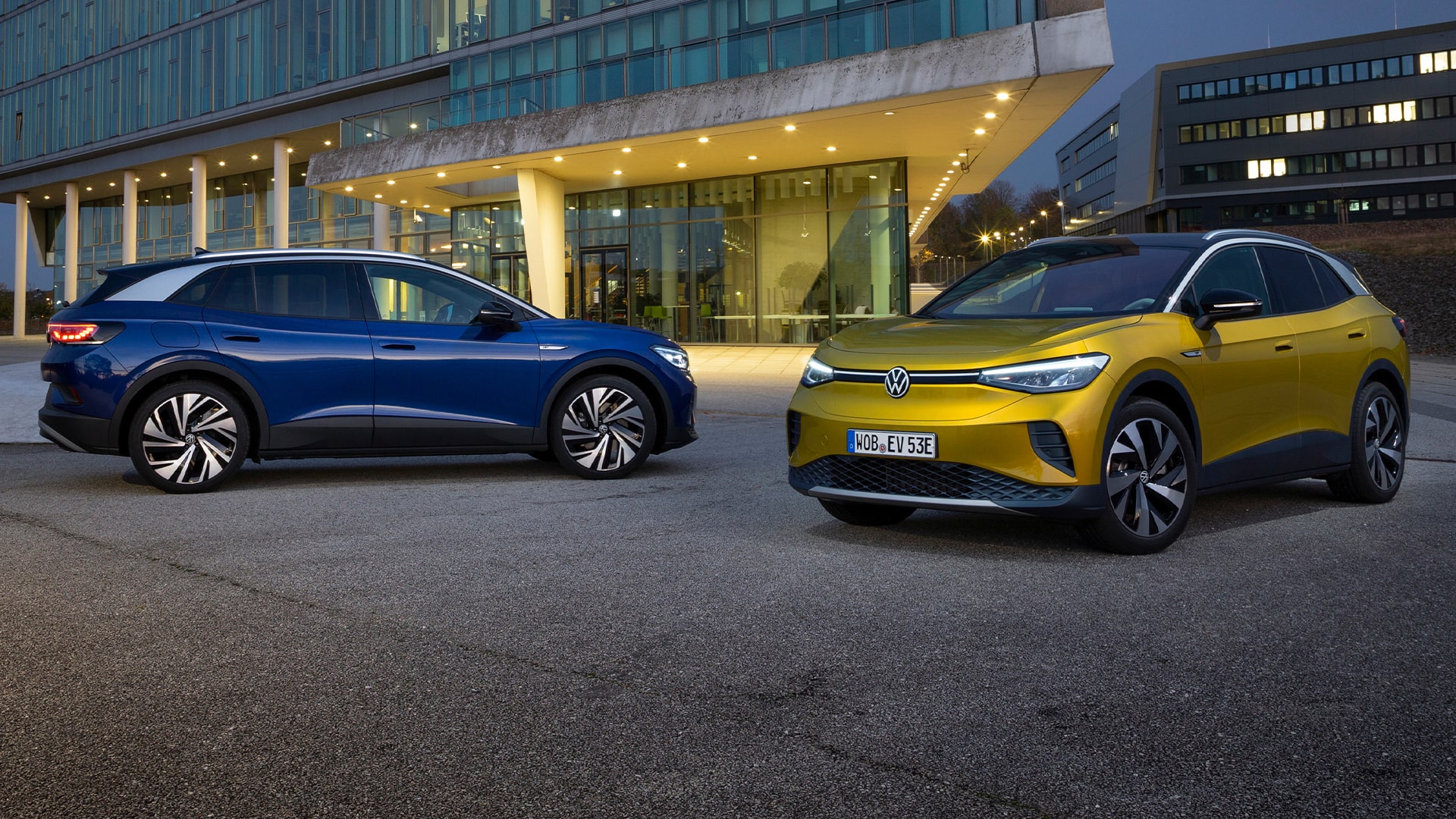

The mid-size, reasonably priced EV market is, thank goodness, filling out. Manufacturers are still going down the road of luxury but more than ten years after the Nissan Leaf started trying to be just a regular car but electric, other automakers are aiming for the mass market. The thing about EVs is they don’t always have to be some sort of enfant terrible, disruptive, industry-shaking breakthrough. Like most cars, the most transformative thing they can do to the auto industry is just to actually be things people can buy and drive.
The $40,000 mark (or lower than that) seems like it’s the new frontier for decently-ranged EVs that aren’t trying to turn your world upside-down, just make it a little less emissions-heavy while you’re driving. The EPA has just confirmed the range for the rear-wheel-drive 2021 VW ID.4 with an 82-kilowatt-hour battery: a fairly reasonable 260 miles. So we figured it was time to see how that measures up to some of its competitors.

Volkswagen ID.4 Pro
- Prices start from: Just over $40,000
- Range (EPA): 260 miles (Rear-wheel drive)
- Weight: 4,559 pounds
- Battery: 82 kWh
- Power: 201 horsepower

Nissan Leaf Plus
- Prices start from: $39,220
- Range (EPA): 226 miles (FWD)
- Weight: 3,882 pounds
- Battery pack: 62 kWh
- Power: 215 horsepower
Note: this isn’t the cheapest Leaf; they do go way down to $32,620 for the no-frills model but not exactly a direct competitor of the ID.4.

Tesla Model 3 Standard Range Plus
- Prices start from: $38,490
- Range (est.): 263 miles (RWD)
- Weight: 3,582 pounds
- Battery pack: up to 62kWh
- Power: 271 horsepower

Ford Mustang Mach-E Select Standard Range
- Prices start from: $43,995
- Range (est.): 230 miles (RWD)
- Weight: 4,294 pounds
- Battery pack: 68 kWh
- Power: 266 brake horsepower
Of those four, which you could see as the challengers in this particular category, the ID.4 doesn’t look terrible. Unlike the Leaf, it’s not an evolution of a car that broke the mold 10 years ago but is now due a pretty vigorous shake-up if it’s going to compete in the now. It also comes with less baggage than the lower-end Model 3s, which Tesla looked to be shuffling around towards the end of last year, including getting rid of its cheapest model.
A comparison that might not immediately spring to mind for the ID.4, though, is the Chevy Bolt. VW isn’t out of federal tax credits in the United States, so if you press enough of them onto the price of the ID.4 and cut it by the maximum $7,500, it’s starting to compete with the $31,995 that this year’s Bolt will start at.
After all, Chevy has been totally open about the fact it sees the Bolt as a cheap, cheerful platform it wants to get the maximum out of and won’t be moving into their premium, Ultium-using brands as they try to make the Bolt cheaper and cheaper having run out of those tasty federal tax credits awhile back. The new model doesn’t have its EPA range confirmed yet but it’ll be interesting to see how it stands up.
For now, the Bolt looks basically equivalent—just a little cheaper and softer on the lithium-mining industry, and it narrowly misses the ID.4 on horsepower and most likely fun factor.

Chevy Bolt
- Prices start from: $31,995
- Range (est.): 259 miles (FWD)
- Weight: 3,563 pounds
- Battery pack: 65 kWh
- Power: 200 horsepower
Got a story tip? Share it with me on hazel@thedrive.com